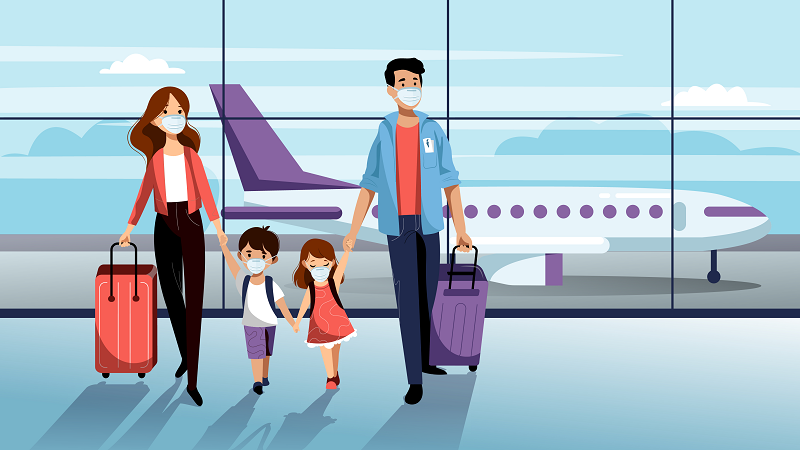Traveling during a pandemic necessitates a more thorough and cautious approach than usual, but it is possible to do so while reducing your risk. As you plan your trip, keep in mind how COVID-19’s expansion could influence your plans, especially now that the delta form is spreading across the country. Continue reading to find out what we have to say and to learn safety precautions that you may use in the car, on an aircraft, in a cabin, or at a hotel.
Travel safety
- Keep your travel plans to yourself, including your lodging arrangements.
- Avoid travelling at night if possible.
- Avoid visiting ‘seedier’ parts of cities, particularly after night.
- Inquire about ‘safe’ and ‘unsafe’ local regions with your hotel management.
- In general, city streets with children and women indicate that the neighborhood is suitable for families.
- Maintain a photocopy of your passport and all other critical documents in a secure location.
- When there are people nearby, use ATMs during the day.
- Instead of cash, try to rely on credit cards and traveler’s checks.
- Don’t fight back if you’re mugged. It’s preferable to loose a few money and a watch than to get hurt.
- Fights, riots, and civil disturbances should be avoided at all costs.
Transportation security
- Keep an eye out for your suitcase on the carousel at the airport. Don’t wait for the crowds to disperse before moving on; you might find that someone else has already snatched your stuff.
- At airports, avoid changing money because thieves may be watching you.
- Inquire about public transportation in your area with your hotel management or a tourist information centre.
- Make sure you’re familiar with the appearance of official taxi cabs. A thief may impersonate a taxi driver in order to entice you into their vehicle.
- Do not ride in a taxi with strangers.
- In some cities, carjacking is a problem. Keep all doors secured and windows up when driving. Make sure your boot is securely fastened as well.
Hotel safety
- If at all feasible, stay somewhere with unmarked’swipe cards’ instead of numbered keys for each room. The robber won’t know which room to loot if you lose your swipe card or it is stolen.
- Just in case, take note of emergency exits, stairwells, fire escapes, and emergency plans.
- When you leave your hotel room for the night, make sure you secure the door. Use the chain if one is included.
- Wait for people you’ve never met before (such as business associates) in the lobby when you’ve scheduled a meeting. Do not invite them into your room.
When travelling, don't make oneself an easy target.
- Wearing pricey jewellery on display is not a good idea.
- Valuables (such as traveler’s checks and credit cards) should be carried on a belt that is worn under the garments and close to the skin.
- Wear your money belt somewhere other than around your waist if you’re feeling particularly exposed. Money belts are also well-known among thieves.
- Carry a ‘dummy’ wallet with a little quantity of cash in it. If you are challenged by a mugger face to face, you can hand over the dummy wallet to prevent further embarrassment.
What can I do to protect myself from the Coronavirus when travelling?
- Hands should be washed often.
- Hands that haven’t been washed shouldn’t be used to contact your face.
- Maintain a safe distance.
- Using a cleaning spray or wipe, clean commonly touched objects.
- Avoid crowds, particularly in confined settings.
- Make sure you’re up to date on the coronavirus outbreak in the country you’re going.
- If you experience symptoms, wear a mask and seek medical attention.


